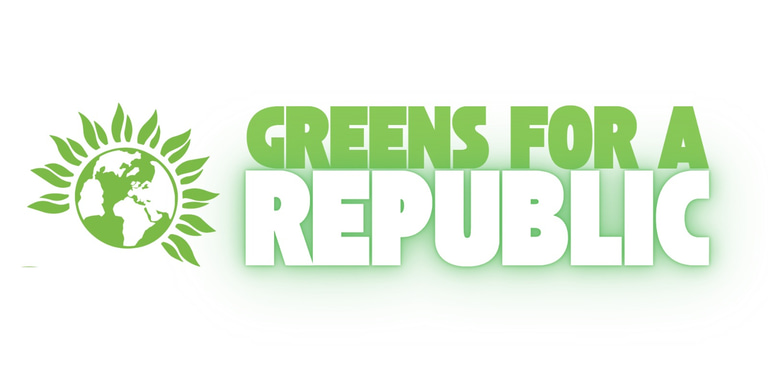Monarchists on the couch - a psychoanalysis
Why does belief in monarchy continue into the 21st century? Here are 12 reasons
9/11/20253 min read
Here are twelve reasons we still suffer from monarchy supporters in the 21st Century:
1. Fear of Change
The comfort of the status quo is dangerous. “Because we’ve always done it this way” is not an argument, it’s an excuse. Other nations have proved how quickly change is possible: Estonia, Latvia and Lithuania moved from Soviet rule to functioning democracies with new constitutions in the early 1990s — in just a few years. Britain, by contrast, clings to an unelected monarchy as though it were eternal and essential. The institution survives not because it works, but because too many people are afraid to imagine anything else. Monarchists don’t defend stability — they defend stagnation. Monarchists fear change.
2. Conditioning
Drip-fed narrative: from cradle to grave, Britain with a monarchy is the only Britain we know. At school, we are made to learn about Royal events and history. Through the media, we are drip-fed trivial stories meant to convince us that the Windsors are "good chaps". Monarchists are the product of state-sponsored propaganda
3. Blind patriotism
The British Empire is dead...and that's a good thing. Monarchists use rose-tinted spectacles to look at our history. They see the monarchy as a key part of our "glorious past". To criticise the monarchy is treason but progressive citizens know that just because the institution is centuries old, it doesn't mean it's fit for purpose in the 21st Century. Monarchists are stuck in the past
4. Cognitive dissonance
Excuses, excuses: "but they do so much for charity", "every family has a few bad apples", "but they seem so nice". Monarchists happily turn a blind eye and make whatever excuses necessary to justify their beliefs. The BBC dismissed Phillip's racism as "gaffes". Piers Morgan loved the coronation for its pomp and pageantry, completely denying Britain's decline. Monarchists are in denial.
5. Pressure to Conform
Many “soft” monarchists support the institution out of social pressure, not conviction. Parents may bite their tongue rather than object to school events celebrating royal jubilees. In small towns, questioning the monarchy risks making you an outsider. It’s easier to nod along. But silence is not neutrality — it is submission. Monarchists conform because it feels safer than standing apart. Monarchists are conformists.
6. Ignorance
Ignorance is bliss, and royal PR thrives on it. When William posed for photos with homeless people in 2023, the images were widely praised. Few asked the obvious questions: why did he spend less than an hour there? Why does a man with palaces and dozens of empty rooms not use them to house the homeless he claims to care about? Such events are stunts, not solutions — yet they work because people are encouraged not to look too closely. Monarchists remain comfortably uninformed, mistaking photo-ops for compassion. Monarchists are blissfully ignorant.
7. Servility + low self-esteem
Servility is the tendency to act as if you do not share equal basic rights with every other person i.e the King. Monarchists have low self-esteem, believing those with the surname Windsor are better human beings with better blood. Servility is also a fear response - the fear of being outcast for having different views. Monarchists are fearful.
8. Establishment Profiteers
The monarchy is not an isolated relic. There would be no monarchy without monarchists. It is part of a web of privilege. Private schools, the Church of England, media barons, landed gentry, business "elites": together, they form an Establishment designed to preserve itself. Those who profit from the system have no incentive to dismantle it, no matter what they privately think of Charles or his family. For them, monarchy is not about duty — it is about dividends. Monarchists are opportunists.
9. Misconceptions
Many monarchists believe myths: that royals attract tourism, that they embody British values, that the alternative must be an American-style presidency. The evidence says otherwise. Tourists come for castles and history, not living royals. Republicans want a humble, Irish-style, ceremonial head of state, not a US-style populist. Monarchists are plagued with misconceptions.
10. Religious Beliefs
Some Christians still view the monarchy as divinely ordained, with Charles as Supreme Governor of the Church of England. The Church benefits from this arrangement through tax exemptions and privilege — a symbiotic relationship dressed as faith. Yet other Christians reject this, declaring only “Jesus is King” and pointing out the Windsor family’s behaviour is often unchristian. The claim of divine right is less theology than self-interest. Monarchists are bad Christians.
11. Dreamers
Monarchists project fantasies onto the Crown. They devour glossy magazine spreads of princesses and palaces, mistaking staged photographs for reality. The Windsors are seen as glamorous celebrities rather than beneficiaries of inherited privilege. This is romance, not reason. Monarchists dream of splendour they will never share, and in doing so, excuse a system that excludes them. Monarchists are dreamers trapped in a toxic parasocial relationship.
12. Underestimating the influence of the monarchy
"Soft" monarchists and the apathetic don't know enough about the monarchy. They believe "it has no real power anyway" and don't know about things like the Duchies, law-vetting, extravagant expenses, its media influence, etc. The monarchy often goes under the radar as the Windsors refuse to be questioned and the scandal-ridden Government provides lots of distractions. Monarchists underestimate the selfish influence of the monarchy.
Together, these traits explain why monarchism persists in a democracy: habit, fear, deference, myth, and vested interest. But none of them stand up to scrutiny. A confident, modern nation doesn’t need inherited privilege at its head — it needs accountability, equality, and a republic.
